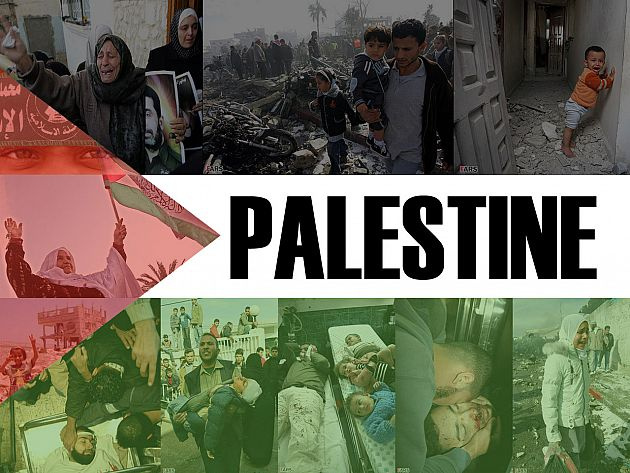Fear in Tel Aviv

Before accepting the ceasefire, Israel had not accepted any of the Resistance’s conditions and had stated that it would continue its attacks until complete disarmament. But suddenly, Israel accepted the conditions set by the Resistance. Why did Israel accept these conditions?
Israel does not have the capability of continuing a long-term war. Due to Israel’s low-depth strategy, its military structure is designed in a way that wars must end very rapidly, efficiently and early. Israel’s military theory is based on three foundations: 1-It should be strong, suppressive and somehow preventive. 2- It should be an intelligent army which could gather information under all conditions and remain superior over the enemy. 3- It should be able to end the conflict rapidly and in a determinative way. None of these foundations was successful in the events that took place in Gaza. In fact, the Israeli army did not have the necessary preventive capability and intelligence and was not able to end the war rapidly. Meanwhile, the Resistance used new initiatives in this war, the most important of which was the issue of the tunnels. The tunnels threatened the safety of the Zionists. The Zionist regime had built bunkers for all Israelis but underneath these bunkers and also the settlements tunnels were constructed through which people could be taken hostage. Israel could not tolerate this, thus, it could not continue the war. This war was the longest war in which Israel was involved and inflicted the most damages to Israel.
What are the viewpoints of the different movements in Israel with regard to Netanyahu’s actions and what will its consequences be in the region?
In the past, Israel used to attack and displace the Palestinians and force them to migrate. But this time, Israel attacked and Palestine responded and the Zionists migrated. In the previous wars, Israel created fear but this time it was the Palestinians who created fear. Israel did not succeed in this regard and was not able to achieve its objectives. The Resistance stood until the last minute and imposed its own demands. The objectives of the Zionist regime were to destroy the Resistance and the tunnels and stop the launching of missiles. But none of these objectives was fulfilled. They had a wrong intelligence evaluation. They assumed that they could reach their objectives through air strikes but it was to no avail. Although they knew that a ground war would be costly for them, they launched a ground attack but were stopped. Now there is enthusiasm on the Palestinian side for reconstruction while the Israeli side is very disappointed and seeks to find the reason behind its failure. Meanwhile, the commander of the Air Forces was replaced. There are now demands for Netanyahu’s resignation so that a new cabinet could be formed. In the 33-day war, there was a balance of fear. This means that if Israel attacks, the Lebanese will counterattack. There is also a balance of fear in the south of Palestine, meaning that if Israel attacks, the Palestinians will also respond powerfully.
What will the impacts of these events be on regional issues?
Israel’s grandeur in the region is broken. Israel had stated that it would not negotiate under fire but this time it had to negotiate. Israel and the US and France and Britain had stated that a ceasefire would not be possible without the disarmament of Gaza. But this did not happen. The Resistance eliminated the issue of disarmament from the negotiations’ agenda, because this is their red line. Now Gaza has set new standards for steadfastness. Gaza has registered new records in humanitarian resistance against the invaders. Israel was faced with military shortages but the Resistance still has arms. The Israelis asked the US to take arms from their arms depots which are placed in the Occupied Palestine for precautionary measures. The important point is that now the time has come for negotiation and politics. The Resistance also shined in this area. Of course, the negotiation table is supported by the level of the people’s resistance on the scene. All Palestinian parties, even those that are ready to compromise, were present in these negotiations. Although the general strategy of the compromising people is different from that of the Resistance, they negotiated in a united team. Right now serious differences have been created among the Israelis.
What impacts would these events have on the peace process between Israel and Palestine?
I believe that due to Israel’s mistake, the Oslo pact will be buried under the ruins of war. Today the Oslo pact is dead. They have been negotiating for more than thirty years now but they have not achieved anything. But now it is the Resistance which is imposing its demands. The Israelis only succumb to force. The achievement of 30 years of negotiation was disgrace and the achievement of ten years of resistance was dignity. Now the important issue is the issue of resistance in the West Bank. The legal, geographical and strategic conditions are different in the West Bank from Gaza. The Israelis and the occupying forces are present in the West Bank. There are also the settlers in the West Bank while these settlers do not live in Gaza. There is little distance between the West Bank and Jerusalem and Tel Aviv. In the recent war, the resistance of the West Bank entered the scene. 20 people were even martyred in this regard. Now it is necessary for the West Bank to take any necessary measures to determine its own fate and remove itself from the yoke of the occupiers. Other countries must also try to help them in this regard.

